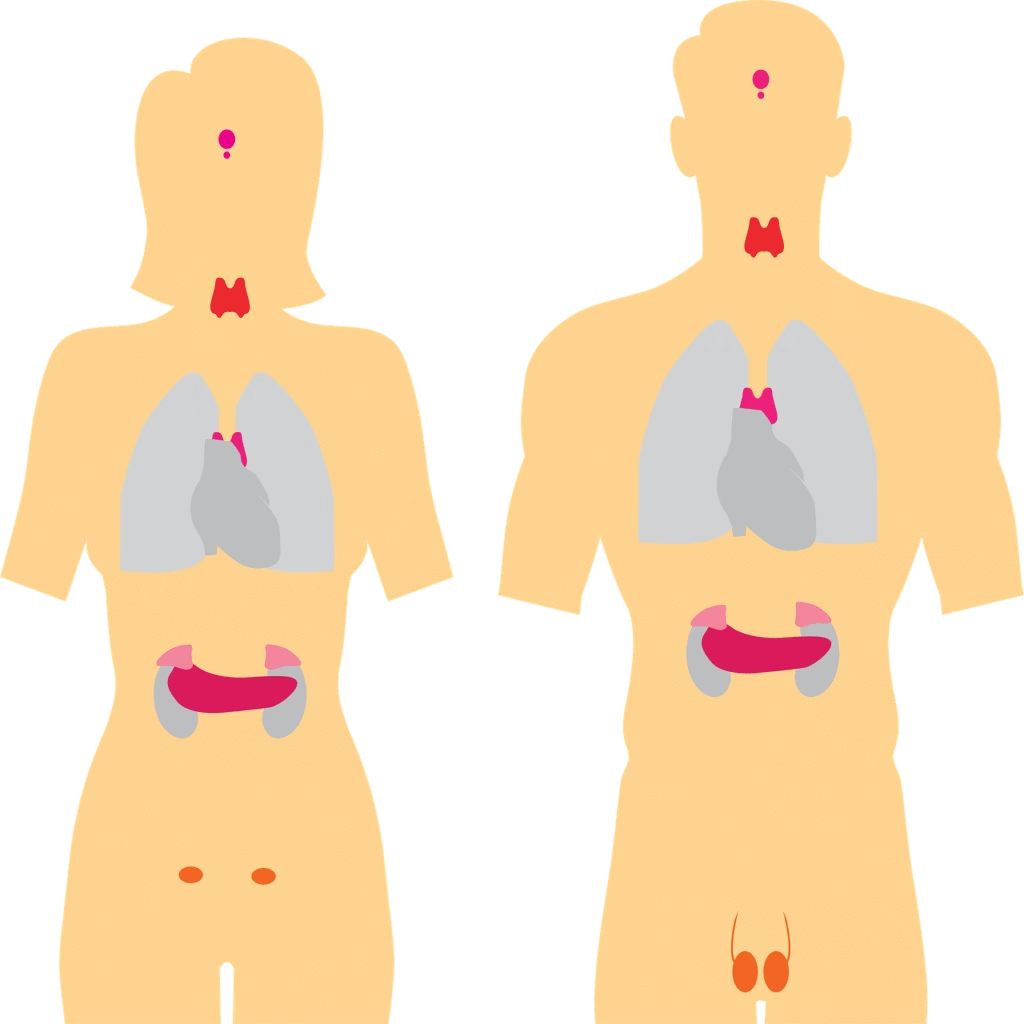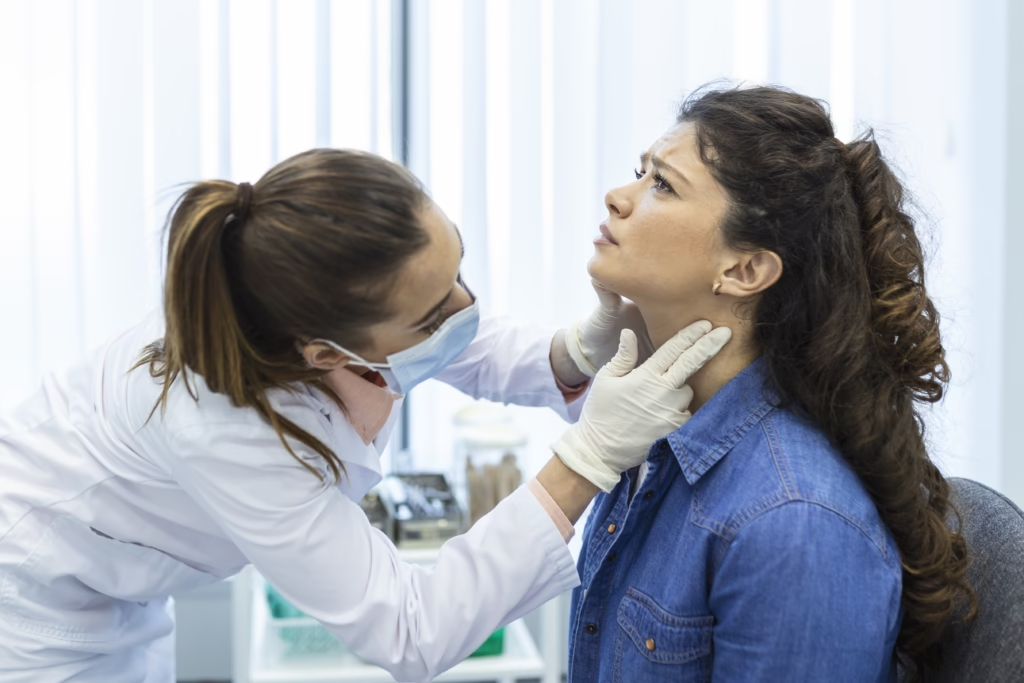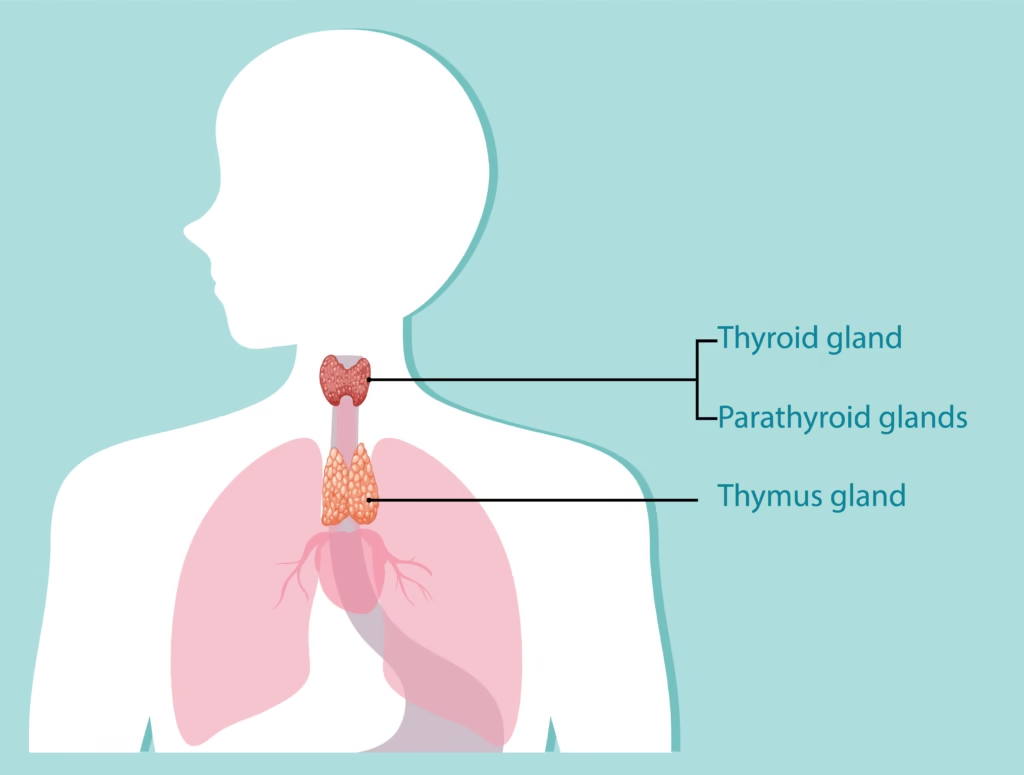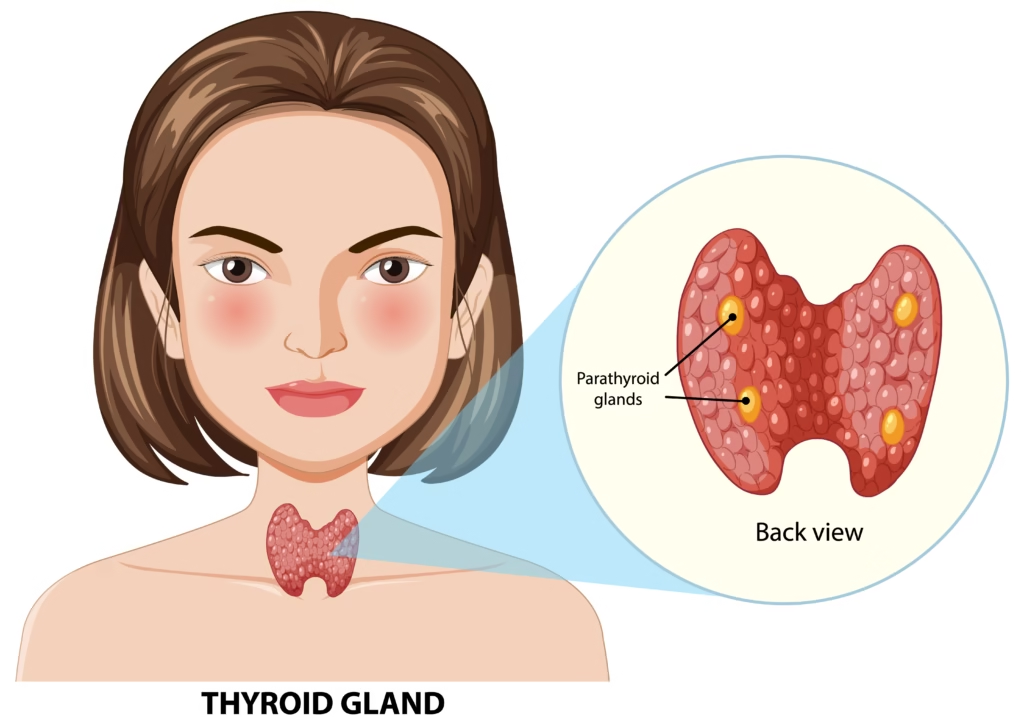Discover everything you need to know about thyroid disorders, including symptoms, causes, diagnosis, and treatment for hypothyroidism and hyperthyroidism. A complete guide for better thyroid health.
Table of Contents
What Is the Thyroid Gland?
The thyroid gland is a small, butterfly-shaped organ situated in the front of the neck, just beneath the voice box (Adam’s apple). Despite its modest size, this gland plays a critical role in regulating many bodily functions.It releases hormones such as triiodothyronine (T3) and thyroxine (T4), which help regulate metabolism, energy, body temperature, heart function, and mood. When the thyroid produces either too much or too little of these hormones, it can lead to a condition broadly referred to as “thyroidism.”

What Is Thyroidism?
Thyroidism is not a medical term by itself but is commonly used to describe disorders of the thyroid gland. These include:
- Hypothyroidism: An underactive thyroid gland that doesn’t produce enough hormones.
- Hyperthyroidism occurs when the thyroid gland becomes overactive and produces excessive amounts of thyroid hormones.
Each of these conditions can have a significant impact on your health and quality of life.
Hypothyroidism: The Sluggish Thyroid
What Happens in Hypothyroidism?
In hypothyroidism, the thyroid gland becomes underactive and fails to produce sufficient levels of thyroid hormones.This causes your metabolism to slow, which can lead to a wide range of symptoms.
Common Symptoms:
- Chronic fatigue and low energy
- Weight gain despite no change in diet or exercise
- Feeling cold all the time
- Constipation
- Dry skin and brittle nails
- Hair thinning or hair loss
- Depression, low mood, or brain fog
- Irregular or heavy menstrual periods
- Slowed heart rate
- Puffy face

Major Causes:
- Hashimoto’s Thyroiditis: An autoimmune condition where the body attacks its own thyroid gland.
- Iodine Deficiency: Still common in some areas, especially where iodized salt isn’t used.
- Post-thyroid Surgery or Radiation: Hypothyroidism can develop after thyroid surgery or radiation therapy, especially if a portion or the entire gland is removed or damaged.
- Certain Medications: Like lithium or amiodarone.
Diagnosis:
- TSH (Thyroid Stimulating Hormone): Usually elevated in hypothyroidism.
- Free T3 and T4 levels: Typically low.
- Anti-TPO Antibodies: Positive in Hashimoto’s thyroiditis.
Treatment:
- The most effective treatment is daily levothyroxine, a synthetic form of T4.
- It’s important to regularly check TSH levels to make sure the medication dose remains appropriate.
- Many people feel significantly better within a few weeks of starting treatment.

Hyperthyroidism: The Overactive Thyroid
What Happens in Hyperthyroidism?
In hyperthyroidism, the thyroid gland becomes overactive and produces too much T3 and T4 hormones. This speeds up your metabolism excessively.
Common Symptoms:
- Rapid or irregular heartbeat (palpitations)
- Unintended weight loss
- Nervousness, anxiety, or irritability
- Tremors in the hands or fingers
- Increased sweating
- Heat intolerance
- Frequent bowel movements or diarrhea
- Difficulty sleeping
- Menstrual disturbances
- Bulging eyes (in Graves’ disease)

Major Causes:
- Graves’ disease is an autoimmune condition in which the immune system causes the thyroid gland to become overactive.
- Toxic Nodular Goiter: Nodules in the thyroid that produce excess hormones.
- Thyroiditis: Inflammation of the thyroid.
Diagnosis:
- TSH: Typically very low.
- Free T3 and T4: Elevated.
- Thyroid scan or Radioactive iodine uptake test may be used for further evaluation.
Treatment:
- Antithyroid Medications: Like methimazole or carbimazole.
- Beta-blockers: Help control symptoms like rapid heart rate.
- Radioactive Iodine Therapy: Destroys overactive thyroid cells.
- Surgery: Partial or total thyroidectomy in selected cases.

How Are Thyroid Disorders Diagnosed?
Key Blood Tests:
- TSH: Most sensitive and commonly used initial test.
- Free T3 and Free T4: To assess the levels of circulating thyroid hormones.
- Anti-TPO and Anti-thyroglobulin antibodies: Helpful in diagnosing autoimmune thyroid disease.
Imaging:
- Thyroid Ultrasound: Detects nodules or structural abnormalities.
- Radioactive Iodine Uptake Scan: Helps determine the cause of hyperthyroidism.
Thyroid and Mental Health
Thyroid disorders can mimic or contribute to mental health conditions:
- Hypothyroidism can cause symptoms similar to depression, memory issues, and slow thinking.
- Hyperthyroidism is often linked with anxiety, restlessness, and insomnia.
A mental health evaluation should always include thyroid function testing to rule out physiological causes.
Thyroid Disorders in Women
Thyroid disorders are more common in women than in men, particularly during periods of hormonal fluctuations such as pregnancy, menopause, or puberty.
Key Concerns:
- Menstrual Irregularities: Both hypothyroidism and hyperthyroidism can affect your cycle.
- Fertility Issues: Untreated thyroid disorders can make conception difficult.
- Pregnancy Complications: Thyroid hormones are vital for fetal brain development. Untreated hypothyroidism can lead to miscarriage, preterm birth, and developmental issues.

Diet and Lifestyle Tips for Thyroid Health
Nutrients to Include:
- Iodine: Essential for thyroid hormone production. Found in iodized salt, seafood, and dairy.
- Selenium: Supports enzyme activity. Found in Brazil nuts, sunflower seeds, and tuna.
- Zinc: Helps hormone conversion. Found in meat, legumes, and seeds.
Foods to Limit or Moderate:
- Goitrogens: Found in raw cruciferous vegetables like broccoli, cabbage, and soy. Cooking them reduces their goitrogenic effect.
- Highly processed foods: May interfere with hormone absorption or contribute to weight gain.
Lifestyle Advice:
- Exercise regularly to boost metabolism and mood.
- Sleep well to help hormonal balance.
- Manage stress through yoga, meditation, or hobbies.
- Avoid smoking and limit exposure to endocrine disruptors like BPA in plastics.
When Should You See a Doctor?
- Unexplained fatigue, weight gain or loss
- Swelling at the front of the neck
- Depression or anxiety that doesn’t improve
- Changes in heart rate or blood pressure
- Trouble conceiving or irregular periods
- Persistent constipation or diarrhea
Don’t ignore these symptoms. Early detection through a simple blood test can prevent long-term complications.
Final Thoughts
Thyroid conditions are widespread, particularly in women, and frequently remain undetected. The good news? They are usually manageable with proper diagnosis, treatment, and lifestyle adjustments. If you suspect a thyroid issue, talk to your healthcare provider about getting tested.
Knowledge and timely care can go a long way in restoring hormonal balance and improving your quality of life.
Stay tuned for detailed blogs on:
- Hypothyroidism
- Hyperthyroidism
- Thyroid Diet Tips
- Thyroid in Pregnancy
- Thyroid and Mental Health
- Natural Support for Thyroid Health
Follow this space to learn more about how your thyroid affects your well-being—and what you can do to take control of your health.
